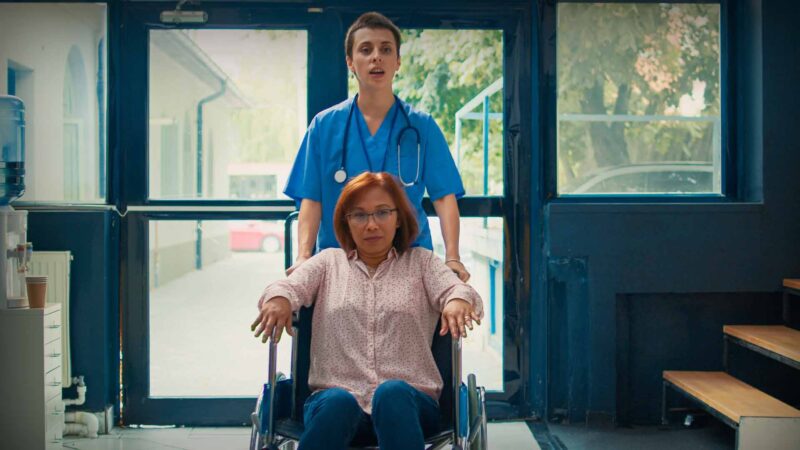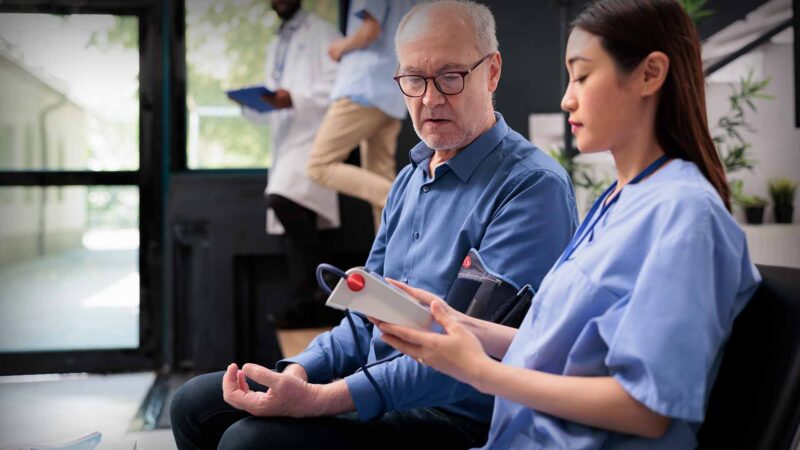Commencing a new series called Pioneers in Health Care, is an interview with Professor Jeremy Chapman AC who for over 30 years, has been involved in nephrectomy, or kidney transplantation.
Honoured “for eminent service to medicine, particularly in the areas of clinical and biomedical research, to the development of ethical policy and practices for organ donation, acquisition and transplantation, and to renal medicine organisations and publications, Jeremy Chapman AC has played significant roles in development of kidney, pancreas and unrelated Bone Marrow Transplantation in Australia.
He has been responsible for global development of ethical transplantation through The Transplantation Society, the World Marrow Donor Association and through advisory roles to the World Health Organisation. He is identified as one of the most influential global leaders in the field of clinical transplantation.
Credit: Australian Academy of Health and Medical Sciences
In September 2022, Western Sydney’s Professor Jeremy Chapman was bestowed the prestigious 2022 Medawar Prize on-stage in Buenos Aires, Argentina.
The Medawar Prize, awarded biennially since 1990 and named after Society co-founder Sir Peter Medawar, is globally recognised as the most prestigious award for excellence in Transplantation Science and Jeremy is “surprised and honoured” saying “not many people get this award so it’s a true delight”.
The award recognises outstanding investigators whose contributions have profoundly influenced organ transplantation.
Professor Chapman has dedicated much of his career to clinical care and research at Westmead, since commencing as a renal physician at Westmead Hospital in 1987. He has worked as Director of Western Renal Services, Westmead Hospital’s Director of Medicine and Cancer, as well as the Director of the Westmead Hospital Foundation, Chair of the Westmead Research Hub Council and member and deputy chair of the board of WSLHD.
In the early days of transplantation long-term care of transplant patients was mostly undertaken by transplant surgeons but as both the numbers and the complexity of transplantation increased, Professor Chapman was amongst the vanguard of renal physicians that focussed, as a physician, on care of patients after their transplant.
“It’s been an interesting road of discovery over time, but also a major transformation in the outcome for our patients,” Professor Chapman said.
“When I was first involved in 1978, we thought a 60% success rate at one year after a transplant was pretty good, even when choosing the very best patients to transplant, now, we would expect more than 90 or 95% success rates in much, much older and sicker patients.”
“Australia has been a great springboard for global activity, so it’s worked out very well to be working in Australia to impact on transplantation globally.”, according to Professor Chapman.
You Might also like
-
Redefining diversity in clinical trials
Ensuring inclusion, diversity, equity and patient input in the development of novel drugs and medical devices has become well accepted in health care. However appropriate implementation of these elements has been a challenge for many. Only by implementing these conscious inputs can patient outcomes be improved and health disparities in marginalised groups be addressed.
Australian Health Journal spoke to Gillian Mason, Consumer and Community Involvement Lead at Hunter Medical Research Institute in Newcastle, NSW on this topic discussed at the recent ARCS Conference in Sydney.
-
Unleashing the potential of Paramedic skills and knowledge
According to a prominent paramedicine academic and researcher, paramedics have the potential to provide much-needed care in the community, changing the traditional healthcare model. Research points to paramedics having a wider healthcare workforce impact based on their ability to identify and fix problems 24/7.
Dr. Brendan Shannon is Head of Postgraduate Programs in the Department of Paramedicine at Monash University and a member of The Australasian College of Paramedicine. His interests including refining healthcare models, to ensure underserved communities receive requisite care. These alternative care pathways, like outreach programs, can work out of hospitals to provide care in underserved communities with social and complex chronic conditions.
-
Values in Workplace Culture
Professor Sabe Sabesan, is the Clinical Dean of the Townsville Regional Medical Training network incorporating the Townsville Hospital and Health Services and the Townsville Clinical School of the James Cook University and the director of the department of Medical oncology at the Townsville Cancer Centre, Townsville Hospital.
The Professor recently wrote, “Workforce wellness and engagement have become buzzwords in healthcare settings since there is an intimate relationship between staff wellbeing and performance of the healthcare system. Wellness initiatives such as wellness champions and wellness committees have been set up in response to emerging workforce mental health issues. These are largely reactive rather than being proactive in addressing or preventing the root cause of mental health issues.”



